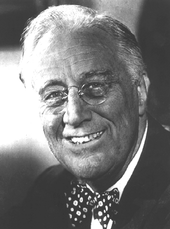Great myths about the great depression
Thomas Sowell (archive)
October 9, 2003 | Print | Send
They say “truth will out” but sometimes it takes a long time. For more than half a century, it has been a “well-known fact” that President Franklin D. Roosevelt got us out of the Great Depression of the 1930s. That view was never pervasive among economists, and even J.M. Keynes – a liberal icon – criticized some of FDR’s policies as hindering recovery from the depression.
Only now has a book been written in language that non-economists can understand which argues persuasively that the policies of the Roosevelt administration actually prolonged the depression and made it worse. That book is “FDR’s Folly” by Jim Powell. It is very readable, factual and insightful – and is endorsed by two Nobel Prizewinning economists.
If the word “folly” seems a little dismissive, read the book first. Someone described FDR’s trust-busting Assistant Attorney General Thurman Arnold as being like one of the Marx brothers who went into government by mistake. That description would apply to many of the others around FDR, including his much-vaunted “brain-trust” of presumptuous and self-righteous people.
It is painfully obvious that President Roosevelt himself had no serious understanding of economics, any more than his Republican predecessor, Herbert Hoover, had. The difference was that Roosevelt had boundless self-confidence and essentially pushed some of the misconceptions of President Hoover to their logical extreme.
The grand myth for decades was that Hoover was unwilling to use the powers of government to come to the aid of the people during the Great Depression but that Roosevelt was more caring and did. In reality, both presidents represented a major break with the past by casting the federal government in the role of rescuer of the economy in its distress.
Scholarly studies of the history of these two administrations have in recent years come to see FDR’s New Deal as Herbert Hoover’s policies writ large and in bolder strokes.
Those who judge by intentions may say that this was a good thing. But those who judge by results point out that none of the previous depressions – during which the federal government essentially did nothing – lasted anywhere near as long as the depression in which the federal government decided that it had to “do something.”
In “FDR’s Folly,” author Jim Powell spells out just what the Roosevelt administration did and what consequences followed. It tried to raise farm prices by destroying vast amounts of produce – at a time when hunger was a serious problem in the United States. It imposed minimum wage rates that priced unskilled labor out of jobs, at a time of massive unemployment.
Behind both policies was the belief that what was needed was more purchasing power and that this could be achieved by government policies to raise the prices received by farmers and workers. But prices do not automatically translate into greater purchasing power, unless people buy as much at higher prices as they would at lower prices – which they seldom do.
Then there were the monetary authorities contracting the money supply in the midst of the biggest depression in history – when the economy was showing some signs of revival, until their monetary contraction touched off another big downturn.
With policy after policy and program after program, “FDR’s Folly” traces the high hopes and disastrous consequences. It would be funny, like the Keystone cops running into one another and falling down, except that millions of people were in economic desperation while this farce was being played out in Washington.
Perhaps worse than any specific policy under FDR was the atmosphere of uncertainty generated by incessant new experiments. Billions of dollars of investment were needed to create millions of jobs for the unemployed. But investors were reluctant to risk their money while the rules of the game were constantly being changed in Washington, amid strident anti-business rhetoric.
Some of the people who most admired and almost worshipped FDR – poor people and blacks, for example – were hurt the most by amateurish tinkering with the economy by Roosevelt’s New Deal administration. This book is an education in itself, both in history and in economics. It is also a warning of what can happen when leaders are chosen for their charm, charisma and rhetoric.
